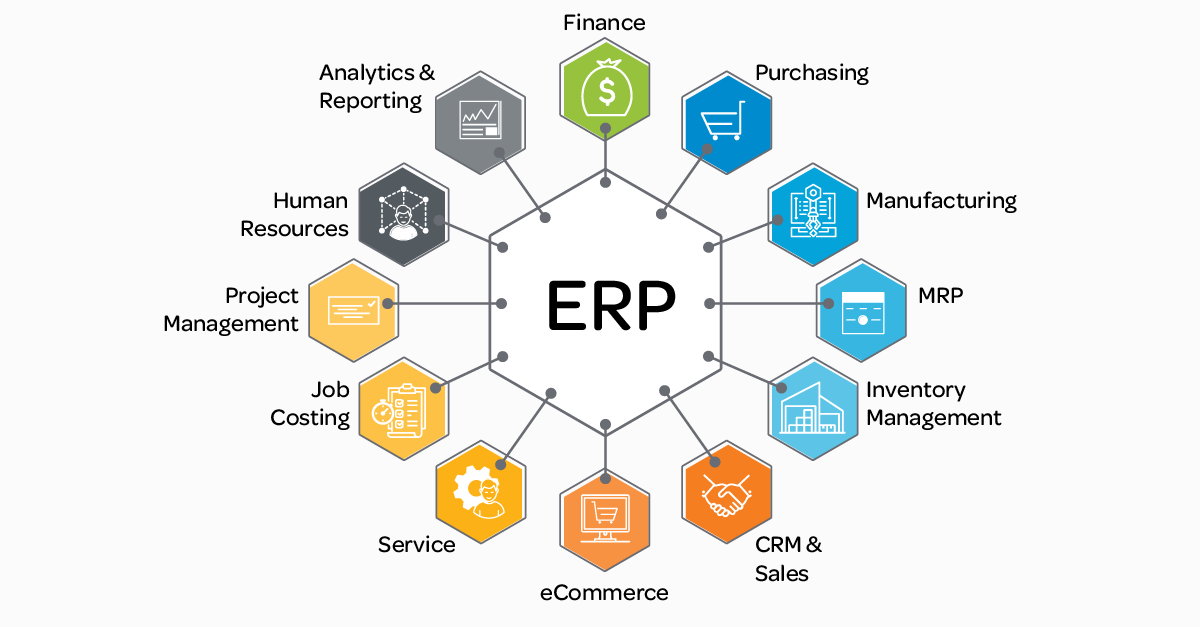
Image by TechnologyAdvice
What is enterprise resource planning (ERP) software?
Enterprise resource planning software pulls day-to-day data from many departments, merging it into a single source of truth that benefits the entire organization. ERP tools combine detailed information and key metrics taken from a variety of resources, including finance, human resources, operations, manufacturing, sales, and marketing. ERP systems centralize data, minimize manual entries and can make business data visible to key stakeholders and their teams.
For example, a project management module, when included with ERP software, allows project managers to track plans and schedules. As projects progress, the ERP system records the incoming data, making it available to the appropriate staff, who then might make staffing, scheduling, and financial forecasts to react quickly to changing situations. Management can get a true picture of the progress taking place on their various projects. As a result, budgets and estimates tend to be more realistic, because they are based on accurate, real-time data.
ERP software for different industries
Different industries have different needs from their ERP software. While all ERP systems minimize the manual processes used in day-to-day operations, a wide variety of ERP systems are available. Businesses, whether they are in the construction industry (and using a project-based ERP) or in sales and marketing (with a focus on customer satisfaction) can take advantage of ERP software.
When manufacturing ERP software is used, a business can adapt more quickly to changes in the sales pipeline. Upcoming workloads can be planned more efficiently. Human resources then increases hiring and ensures the plant is staffed. Logistics finds the fastest delivery routes from the latest data. Warehouse management receives constant updates on their inventory, allowing them to fill orders faster. The financial team can improve their forecasts with accurate data.
Manufacturing and product teams streamline processes with interconnected features that bring together the functions of other software systems, including:
- Supply chain management
- Inventory management
- Material requirements planning (MRP)
- Fleet management
- Work order software
Sales, marketing, and customer service teams increase functionality and satisfy existing customers with centralized data from ERP modules, including:
- Customer relationship management (CRM)
- Contract management
- Customer service
- Helpdesk
- Marketing automation
HR teams organize workforce productivity through integrated software systems, including ERP modules for:
- Recruiting
- Applicant tracking
- Core HR
- Performance management tools
Interconnected data and business intelligence software provide financial and accounting teams with more accurate forecasts. These tools reduce risk, improve collaboration, and drive growth through automation and data sharing. Overall, ERP suites bring together data via a fully integrated system, often saving the company money that would otherwise be spent on hundreds of unconnected apps.
